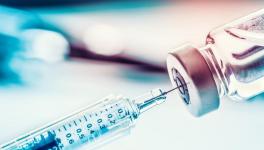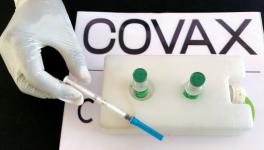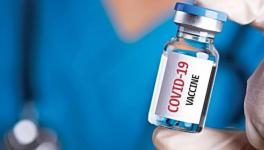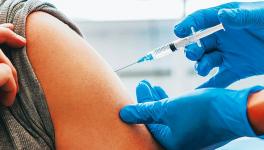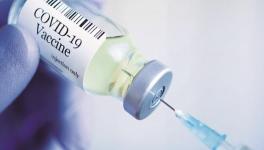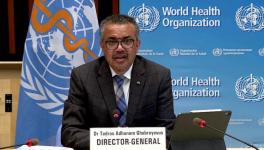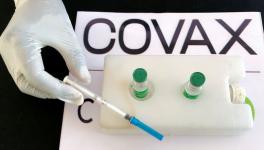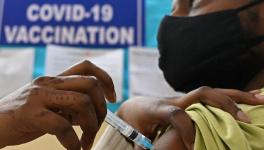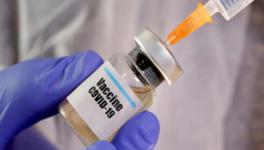COVID-19 Vaccine May Come, but What About Equitable Distribution?
Probably, an effective and safe vaccine could be the easiest way to beat the pandemic. However, the vaccine will take its own time to reach the people in general. We may get it soon or we may not. But, even before the vaccine can make its way to the people, widespread fear has engulfed many, a fear that emanates from the widening inequalities in the world.
Predictably, the rich countries are already going for deals with vaccine manufacturers even before all phases of clinical trials are completed. Will the world have a situation where a few countries will hoard the maximum doses of the vaccine and poorer countries really in need will have to wait too? The chances of this are high.
Let’s take some of the latest developments on this front. The US government, under the operation warp speed initiative, has signed a deal worth $6 billion with several vaccine companies. It aims to provide its population with vaccines by early 2021.
European countries are not far behind. The inclusive vaccines alliance of Germany, the Netherlands and Italy has signed deal to buy 400 million doses of the vaccine with multinational company, Astra Zeneca, for use by European Union member countries. The United Kingdom, similarly, has deals with Astra Zeneca and other pharma majors. China is also racing ahead in its own vaccine.
Here, it needs a mention that over 200 candidate vaccines are currently under development by different countries. Among these, the three candidate vaccines that have shown good results are those from UK (Oxford and Astra Zeneca), US (Moderna) and China (Sinovac). With the big countries racing ahead in vaccine development, and deals by some of them already in place, chances are that there will be a situation where some well-to-do countries will draw maximum benefits while the majority will remain out of it.
Recent history is also not very encouraging on this count. The development of antiviral drugs against HIV did benefit the West. That was during 1996. But, the worst hit continent, Africa, had to wait for seven long years for the drugs to be available in the region. This impacted it catastrophically.
More recently, during the H1N1 influenza pandemic of 2009, the US and many European countries first ensured that enough doses were out there for their population, and after having reached them, they went out donating a portion to poorer countries. The situation was that many countries had to wait for too long a period, for too little.
Therefore, we need to ask the question as to who should get the first doses, if a COVID-19 vaccine really sees the light of the day.
Experts say that the first preference should go to health workers across the world, then those at high risk due to severe diseases, followed by those staying in areas where the disease is spreading very fast, and after that the rest should follow.
There should be clear categorization, if seen scientifically and also to manifest the real zeal of eradicating the disease from the world. Otherwise, a pandemic can never be defeated.
Ellen Hoen, a Dutch lawyer and public health activist, was quoted to have said that “It would be ludicrous if low-risk people in rich countries get the vaccine when healthcare workers in South Africa don’t.”
Instances from history and the recent activities of some rich countries justifiably raise the fear that millions of vaccine doses will be pocketed by them, pushing the poorer ones into a deeper abyss.
Also, a big question mark hangs over the issue of vaccine price. Big pharma companies are investing in vaccine research. The chance is that they will try to maximise their benefits and the cost of the vaccine will be extraordinarily high. US company Moderna is developing a vaccine with its own R&D (research & development) but Astra Zeneca is betting in the name of Oxford University. Other European companies are also on the same track. To mitigate the global health crisis, a true global effort of cooperation is the need of the hour.
The World Health Organisation (WHO) has initiated a global cooperation effort for supporting vaccine development in weaker countries and also, importantly, for equitable global distribution of it post production. For that, WHO has collaborated with Gavi, the Vaccine Alliance, CEPI (The Coalition for Epidemic Preparedness Innovations) and has launched COVAX (the COVID19 Vaccines Global Access) initiative.
The idea of COVAX is to invest on 12 candidate vaccines and also to ensure early access when these become available. It aims to produce two billion doses by 2021-end with a break up of 950 million for high- and upper middle-income countries, 950 million for low- and lower middle-income countries, and 100 million for “humanitarian situations and outbreaks that are out of control.
According to a WHO press release of July 15, a total of 75 countries have submitted their expression of interest. These countries would finance from their own budgets and partner with another 90 lower income countries to be supported through the COVAX Advance Market Commitment (AMC) of Gavi. This 165 countries account for 60% of world population.
Going by this, COVAX will provide respite to rich countries who sign it. If a vaccine candidate that such a country is investing upon, turns out to be ineffective and fails a licensure, even then it can have access to other vaccines through COVAX, but only for 20% of its population. COVAX, through its partners, is trying to attract investment and with the fund, it claims it will support vaccine development amongst needy countries and distribution post-production.
Nevertheless, there are apprehensions about COVAX. Notably, COVAX has penned a $750-million deal with Astra Zeneca as on June 4. According to Kate Elder, a vaccine expert with Doctors Without Borders: “How did they choose AstraZeneca? What conditions are there in the agreement with AstraZeneca if the company doesn’t meet volume commitments? None of the conditions around that are known.”
John Nkengasong, the director of African Centres for Disease Control and Prevention, feels that Africa needs to explore other avenues as well. “We welcome the COVAX Facility arrangement but we cannot just wait for discussions in Geneva”, he says. According to him, African governments have already approached banks for financial help to deal with the big pharma companies.
To realise its vision and meet with the aspiration of weaker countries, COVAX needs to ensure a financial investment allocation mechanism and fair and equitable access in the truest sense of the terms.
Get the latest reports & analysis with people's perspective on Protests, movements & deep analytical videos, discussions of the current affairs in your Telegram app. Subscribe to NewsClick's Telegram channel & get Real-Time updates on stories, as they get published on our website.









